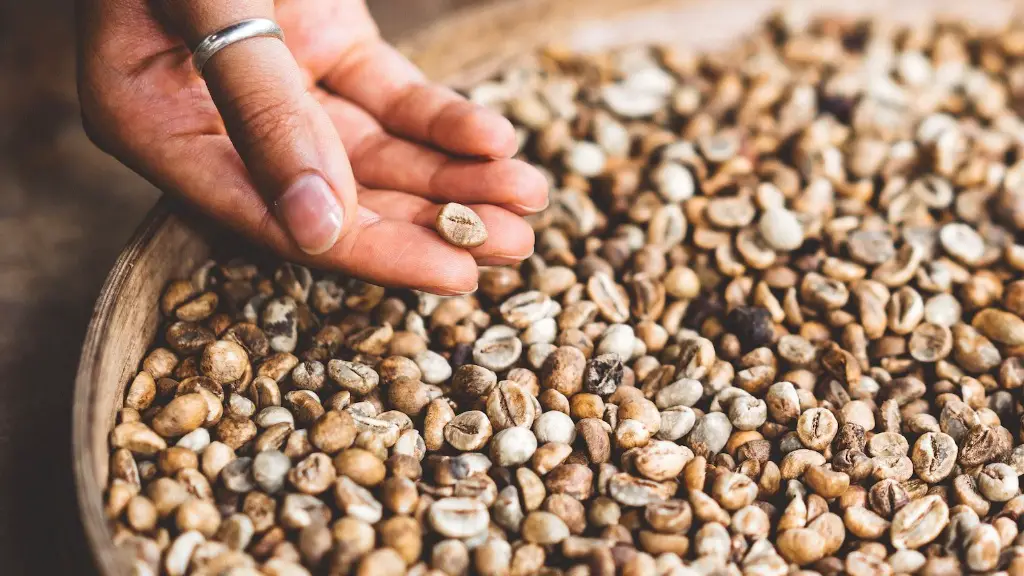Know the facts about coffee and heart health
Coffee has been celebrated for centuries as the source of many health benefits, however, there are certain scenarios where it may not be recommended. For those with existing heart problems, coffee intake should be monitored. While evidence is still inconclusive, heart health experts suggest several precautions.
Caffeine, which is a key component of coffee, can increase blood pressure, and individuals with heart issues may be especially sensitive to this. While drinking more than 500 milligrams of caffeine in a day has been known to lead to higher blood pressure, many don’t take into consideration their total caffeine intake from different sources during the day. The National Institutes of Health noted a few drops of espresso can actually have about two to five milligrams of caffeine.
As for heart arrhythmia, or abnormal heart beat, caffeine can also play a role. According to the American Heart Association, if you have it, even modest amounts of caffeine can trigger its occurrence. Moderate caffeine intake, defined as up to 400 milligrams daily, is generally safe for most adults.
However, it is suggested that people with existing heart disease, including hypertension, coronary heart disease and arrhythmias, should consult their doctors. Some may need to completely avoid caffeine intake and others may limit their amount of coffee drinking. Depending on the types of medicines being taken, effects of caffeine might be increased due to their interactions.
Medicine alone isn’t a foolproof way to keep your heart healthy. While there are many other important factors to consider, such as exercising and diet, coffee can be part of a healthy lifestyle too. A study conducted by Harvard University in 2020 found that drinking caffeinated and decaffeinated coffee had similar benefits when it came to reducing cardiovascular mortality.
Depending on your existing heart condition, it may be worthwhile discussing the details of your medical history and personal lifestyle with your doctor to get guided advice on how much coffee, if any, you should be drinking. Ignoring your cautions can have serious consequences.
Coffee’s effect on blood sugar levels
For those with diabetes, drinking coffee can increase insulin resistance and raise blood sugar levels. To put it simply, this means that the body will require a higher dose of insulin to process glucose from the bloodstream. When issued with a moderate amount of caffeinated coffee, glucose and insulin levels were found to be higher than those who were not.
However, outside of this moderate range, the response to caffeinated coffee was far less severe than those experienced with sugary beverages which contains a high number of carbohydrates. While carbohydrates are usually broken down to glucose and transported through the bloodstream during digestion, the presence of caffeine can slow down the rate at which this process occurs.
Moreover, if you have type II diabetes and are looking to manage your blood sugar levels, it may be wiser to opt for fewer caffeinated drinks and substitute them with decaffeinated alternatives. This way, you can enjoy that coffee hit while avoiding any unwanted spikes in your blood sugar.
Tips on how to drink coffee while safeguarding your heart health
To stay on the safe side and keep your heart in check, here are some tips to consider while enjoying your cup of coffee.
- Know your caffeine threshold. Learn to recognize the amount of caffeine your body can handle to avoid any possible fluctuations in your heart rate.
- Switch to decaffeinated coffee. Cut out the caffeine from your coffee and switch to decaffeinated coffee if necessary.
- Watch your coffee intake. If you’re a huge fan of coffee, it doesn’t mean that you should be drinking it all day – monitor your intake to ensure your health isn’t compromised.
- Make healthy choices. Enjoy natural unsweetened coffee whenever possible and don’t forget to add a dash of milk instead of cream.
Those with current heart conditions should err on the side of caution when consuming coffee due to its effects on blood pressure, insulin resistance, arrhythmia, and other possible cardio-related risks. Individuals should always discuss their own medical history and receive medical advice when deciding to include coffee in their lives.
Can coffee improve overall heart health?
Many studies have found that coffee can actually be beneficial for the health of the heart. Caffeine has antioxidant properties which can contribute to improving cholesterol levels. Studies have shown that it can reduce the buildup of plaque in the arteries and cut down the risk of developing heart disease.
In fact, drinking two or three cups a day can reduce the risk of having a heart attack or stroke by 20%. When properly balanced with the right diet and exercise, coffee can improve focus, physical performance and amongst other things, promote overall heart health.
Alternatives to coffee for improved heart health
Looking for a little something else to lift your energy levels? Here are some caffeine-free alternatives that are both tasty and great for heart health.
- Green tea. Deliciously flavorful yet with milder caffeine, green tea can still improve focus, alertness and overall heart health.
- Kombucha. This fermented tea drink is packed with antioxidants, vitamins, and probiotics that can help the body resist oxidative stress, boosting overall immunity and heart health.
- Organic juices. Fortified with vitamins, minerals and fiber, organic juices can be a great way to stay energized without the caffeine.
It is important to remember that everyone’s body reacts differently to coffee – so if you have existing heart problems, it is best to proceed with caution and speak to a healthcare professional before making any changes.
Coffee can caffeinate more than your mornings
Coffee is a flavorful, versatile and convenient drink. Many enjoy experiencing the different ways it can be served — with cream, nut milks, and sweeteners — providing a level of satisfaction that goes beyond a quick caffeine kick.
In some cultures, it can also be a symbol of comfort, hospitality and socializing. Socializing with a cup of coffee can be an unexpected way to improve heart health — by bringing people together.
Communication, socializing, and companionship can all play a role in decreasing stress levels and positively impacting your health. A recent study conducted by the Harvard T.H. Chan School of Public Health found that loneliness and loneliness-induced behaviors are risk factors for chronic disease.
In essence, coffee should never replace medication prescribed by a medical doctor. But, if enjoyed in moderation, it can be a small, warm way to bring a bit of positivity into your daily routine, while promoting overall heart health.
Alternative methods of coffee consumption
Outside of the traditional cup of coffee, there are many other ways to consume caffeine. From specialty lattes to cold brews, here are some alternative methods of coffee consumption.
- Espresso shots. A well-pulled espresso shot delivers a concentrated dose of caffeine, making it an ideal pick-me-up for those watching their hearts.
- Coffee creamers. Hit a non-dairy groove with coffee creamers for those morning cuppa joes without a health hazard.
- Alternative coffee recipes. Iced coffee, latte popsicles, and smoothies are just a few of the recipes out there that add a layer of creativity to your morning cup of joe.
When consumed safely, coffee can be a unique way to add flavor and excitement to your daily routine — all while taking into account safety precautions for those with existing heart conditions.
How to make coffee safe for those with existing heart conditions
It is still possible to enjoy coffee while accounting for safety with existing heart conditions. Overall, the key is knowing how to make individualized adjustments.
- Look at caffeine daily intake. Understand how much caffeine you are consistently taking in during the day — from all sources.
- Understand current medications. Investigate how your current prescriptions can interact with the caffeine in your coffee.
- Alternate coffee for decaffeinated. Whether it’s brewed, filtered or even decaffeinated, consider alternative coffee recipes for a delicious yet safe cup.
- Know your limits. Know your body’s threshold for caffeine and understand what you can handle.
If you experience chest pain, skipped heartbeats, shortness of breath, fatigue or weakness, seek medical attention right away. By understanding the chemistry behind the caffeine, you can have the right tools to make informed decisions.





